Chocolate tube slime (Stemonitis splendens) is a species of mold that is typically found on fallen trees and decaying wood.
We found the ones in these photos on a fallen log in our yard, but this mold can also be found growing on damp wood in houses.
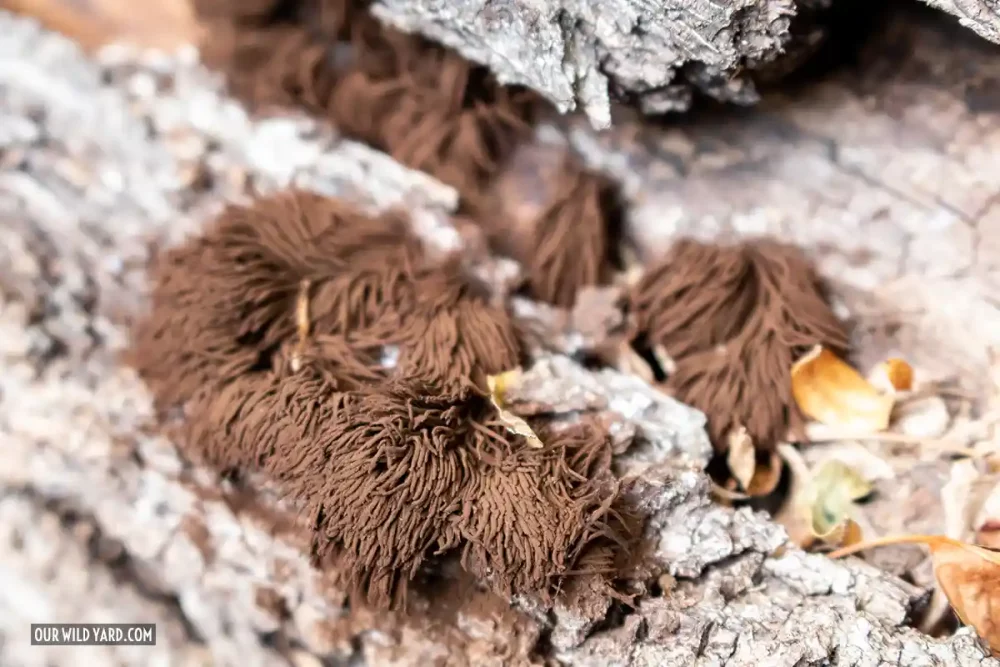
Chocolate tube slime is found globally and while we regularly see other slime molds in our yard (mostly Dog Vomit Slime Mold, Fuligo septica, everyone’s favorite species of slime mold), we’ve only seen chocolate tube slime once.
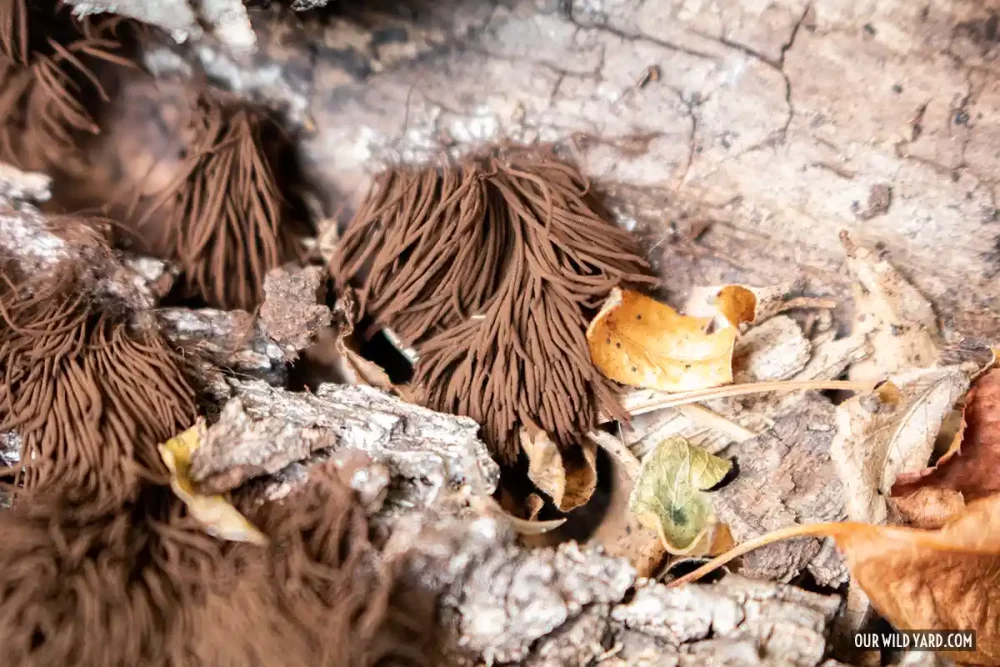
Life cycle of chocolate tube slime mold
Resembling clusters of hairs or chocolate tubes, these tubes are actually the sporangia (fruiting body), forming large colonies. These are 10–20 mm long, and 1–2 mm in diameter and are attached to the wood by thin slender stalks, about 3–5 mm long.
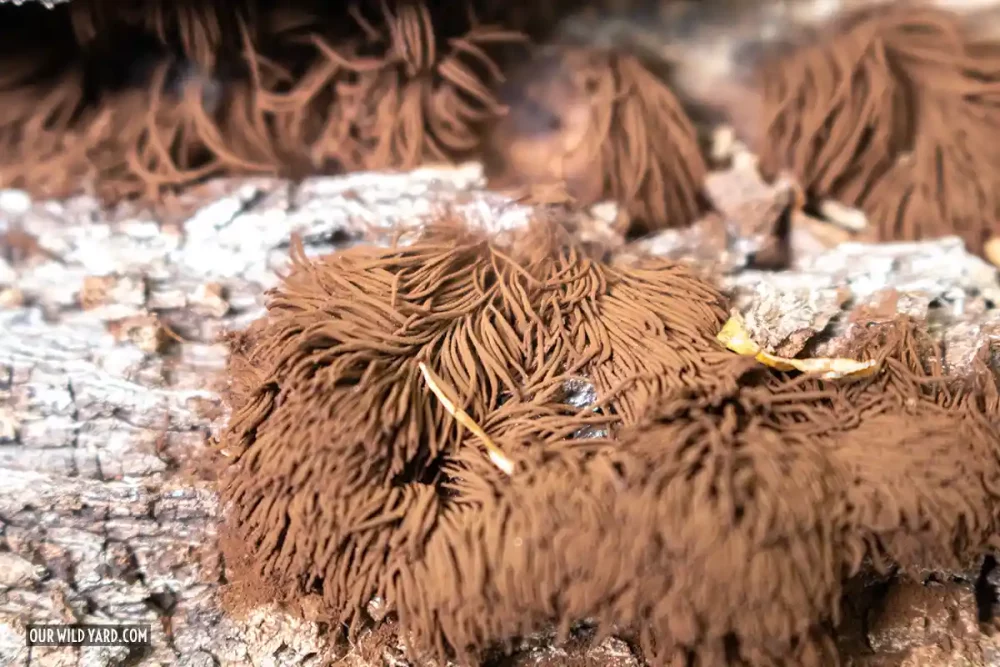
But the chocolate tube slime is not always brown. They start as a white mass (plasmodium) that resembles slimy amphibian eggs, creeping along looking for a good place to settle, like all slime molds.
When they find a suitable place to fruit, they stop and the sporangia appear. It is then that the chocolate tube slime mold starts producing spores. These spores are dispersed to new habitats, where they “germinate” after heavy rain, beginning the life cycle again.
You can see the incredible transformation from plasmodium to sporangia in the slime mold time-lapse below.
Finding chocolate tube slime
Check the forest floor for wood piles, branches hiding under leaf litter, or fallen trees periodically. If you see a log with ‘tree hair’, you got it!
We always leave our beautiful slime mold to do their own thing since they are part of the ecosystem. And if we don’t feel lazy, we set up a camera to catch a time-lapse. They are mesmerizing!
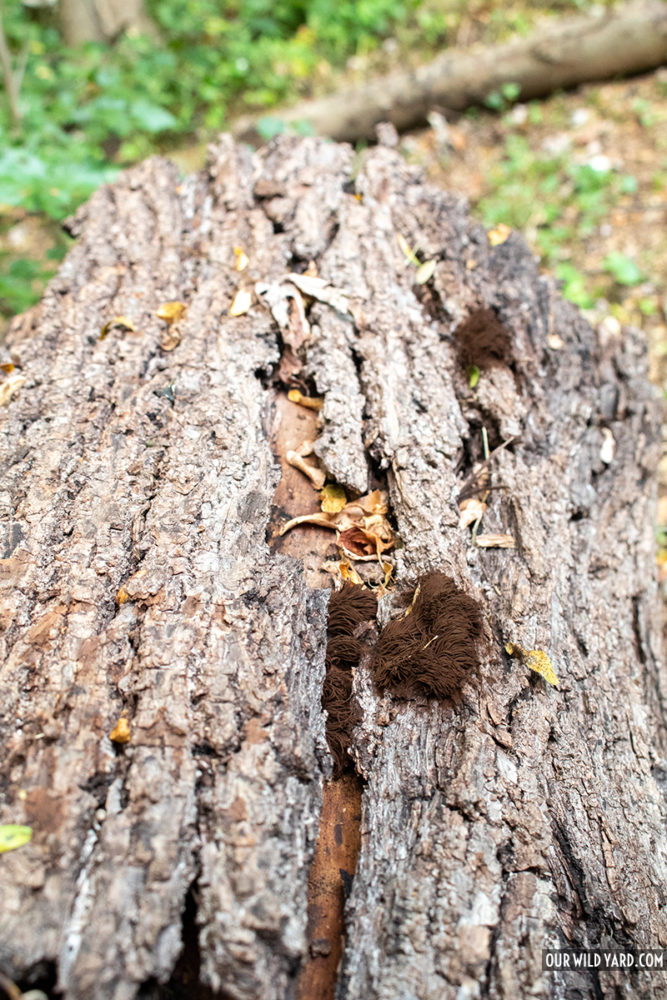
*This article may contain affiliate links. We receive a small commission at no extra cost to you.*
If you are looking to learn more about slime molds, check out this book on slime mold ecology: Myxomicetes: Biology, Systematics, Biogeography, and Ecology by Carlos Rojas, and Stephen L. Stephenson or the book The Social Amoebae: The Biology of Cellular Slime Molds..

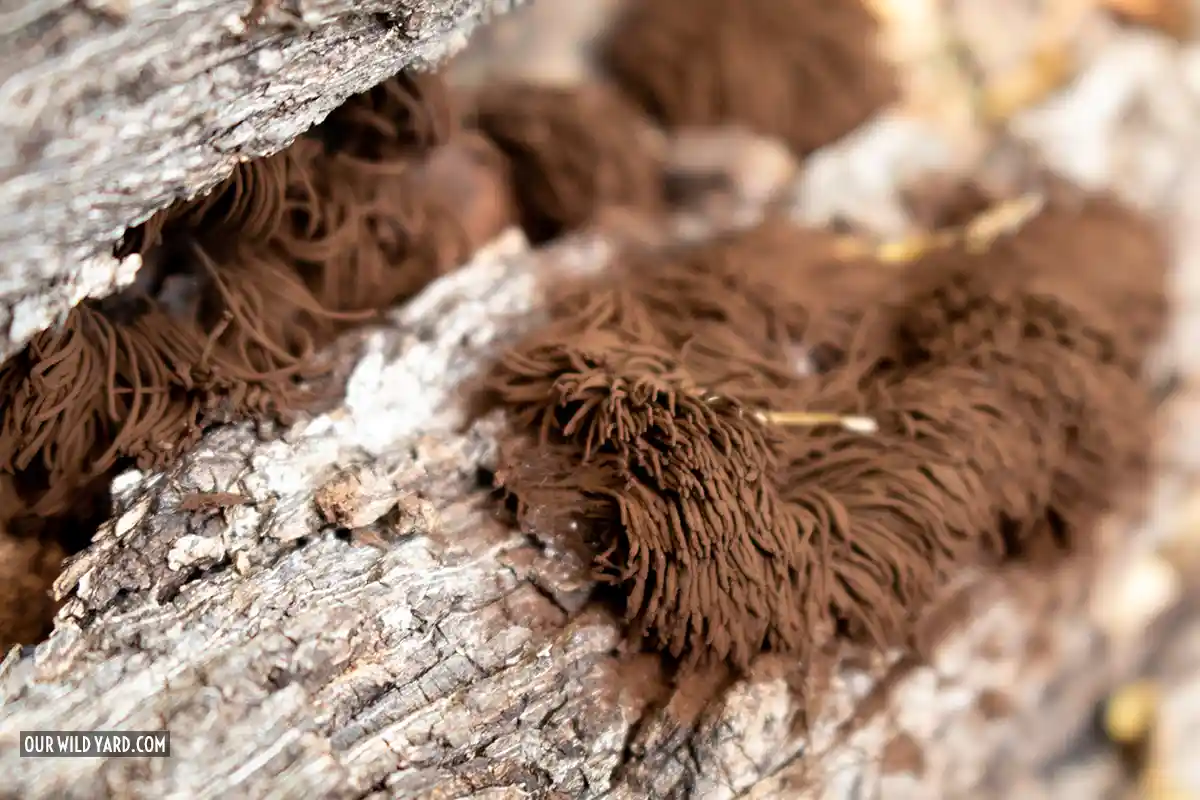
Thank you for your article on the chocolate slime mold. I have it growing on the leaves of my Christmas cactus, hopefully it’s not dangerous is it ?
I have a great photo of it
First thing is that chocolate tube slime mold feeds on organic matter that is dead and starting to decay. So, it is harmless to living plants. etc.
That is a weird place for it to grow, though.
Lastly, to the writer; I wanted to say thank you for your article. I would’ve liked for it to be a little longer. But that’s because it’s one of my favorite organisms ever. I actually didn’t know it had white plasmodium.
Awesome article.
Thanks Tracey! I find them so interesting! I always get super excited when we find a slime mold, we’ve only seen the chocolate tube slime mold once.